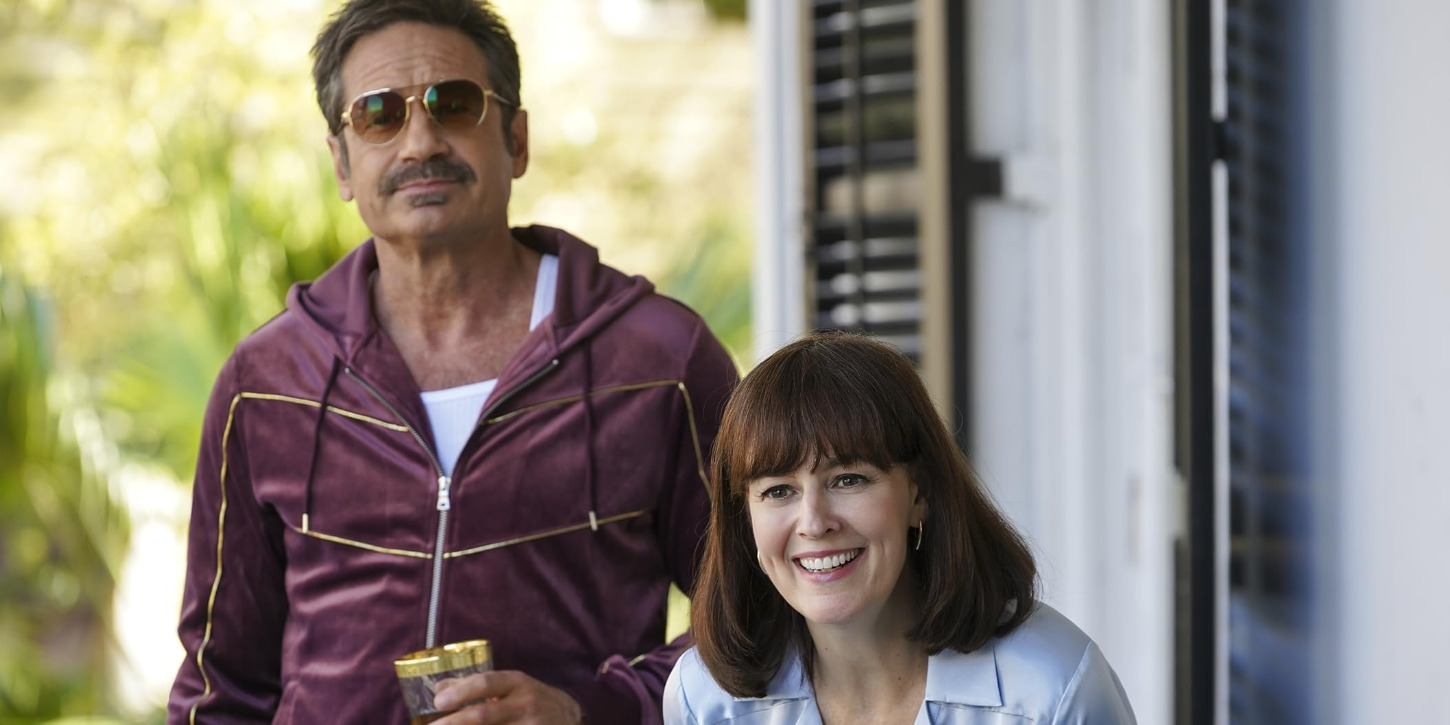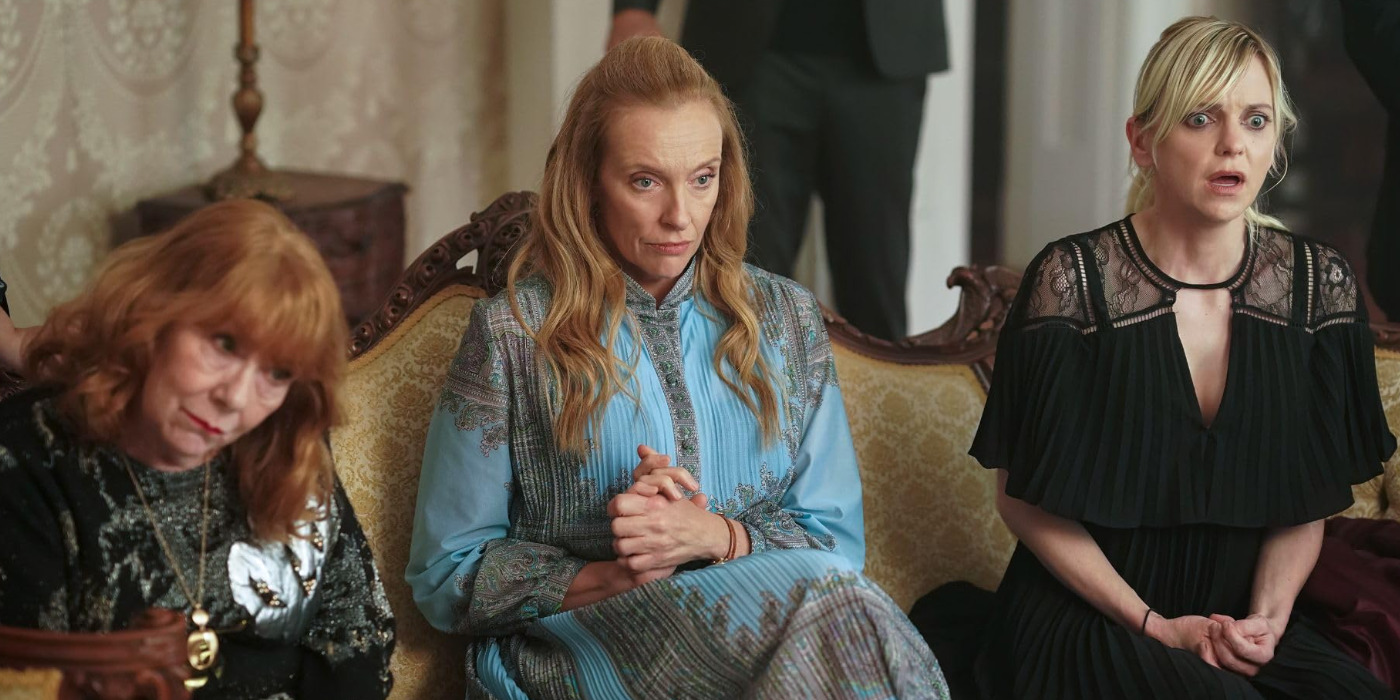‘The Estate’ is a family comedy film that luxuriates in dark humor, compellingly unlikeable characters, and a rapidly escalating absurd situation. Directed by Dean Craig, this film revolves around two sisters, Macey and Savanna, who are on the verge of losing their deceased father’s cafe. However, Savanna comes up with a chaotic solution once she learns about their Aunt Hilda’s deteriorating health. The latter may be unpleasant and impossible to please, but she is also an exorbitantly wealthy woman. Therefore, the two sisters come up with the idea to spend their aunt’s dying days with her to win over a place in her will.
However, it turns out their cousins — the snooty Beatrice and clueless Richard — have the same exact idea. Consequently, chaos naturally ensues once Hilda and her dysfunctional family gather under one roof with one outlandish goal in mind. Despite the film’s comedic genre, the story boasts a grounded narrative that expels a sense of realism through the relatability of the flaws of its characters. However, is there any truth to Macey and Savanna’s wild undertaking?
The Reality of Inheritance Disputes Inspired The Estate
Given the outlandish comedy and oftentimes over-the-top actions of the characters, it’s no surprise that ‘The Estate’ isn’t based on a real-life instance. Even so, reality inspired the base premise for the story in subtle ways. Initially, Dean Craig got the idea for the film after he read an article about a rise in family disputes over inheritance related to increasing amounts of Southern mansions. Consequently, the filmmaker realized that he could unlock the full potential for comedy within this real-life phenomenon by putting a highly dysfunctional family at the center of this issue.

As a result, the initial idea for ‘The Estate’ was born. Even though Craig went on to write it as a pilot for an HBO TV show, it turned into a film filled with dark, absurdist comedy by the time the story arrived at its final stages. As a character-driven story, the film remains greatly informed by the unique personalities that influence the narrative. The filmmaker has previously shared how his characters are perpetually vulnerable to the influence of their actors — and this project proved to be no different.
From Anna Ferris, who plays the chaotic Savanna, to the jarringly oblivious David Duchovny — Craig was able to mine different actors as inspirations for different aspects of their characters. Although each character is starkly distinguished from the others, they all share an inherent penchant for morally ambiguous actions, which feeds into their extreme personas. Thus, within the story’s fictionalized narrative, its exaggerated characters and their ability to tap into various corners of comedy remain the film’s most grounding aspects.
Dean Craig Wanted to Bring Polarizing Comedy to The Estate
The peculiar humor equipped within ‘The Estate’ remains a defining feature of the film, attracting the audience’s attention and holding it throughout its various plotlines. Consequently, the narrative’s farcical brand of comedy significantly informs the film’s identity. On his part, director Dean Craig was intentional about extracting humor from moral ambiguity throughout the project’s creation. The same stemmed from his desire to shift the genre away from what he perceived as a cultural increase in “nice” comedies.

For the same reason, ‘The Estate’ ensures each character — even the protagonists — carries some dubious morals and motives. As such, their ignorance and absurd predicaments become the ultimate source of humor for the narrative. Furthermore, the storylines also intentionally stay away from any notably abrupt reparations from the characters, showcasing a realistic account of stagnation in people’s personalities. Therefore, the film offers the audience a break from transformative media to present a comedy-driven tale that strives to polarize and invite some raised brows.
In fact, Craig reportedly included some jokes and gags within the film that would invite mixed reactions from different kinds of audiences. By doing so, the film compels its audience to interact with the material on a more nuanced level. However, even though the story avoids moralistic arcs in that sense, it carries some thematic lessons about greed and the nuances of socio-economic status. Thus, even after embarking on an outrageous venture to snag an inheritance from a dying woman, Macey and the others manage to hold some connections to reality. Nonetheless, since the tale and its characters lack clear counterparts in real life, the film ultimately remains a work of fiction.
Read More: Best Family Movies on Paramount+


You must be logged in to post a comment.